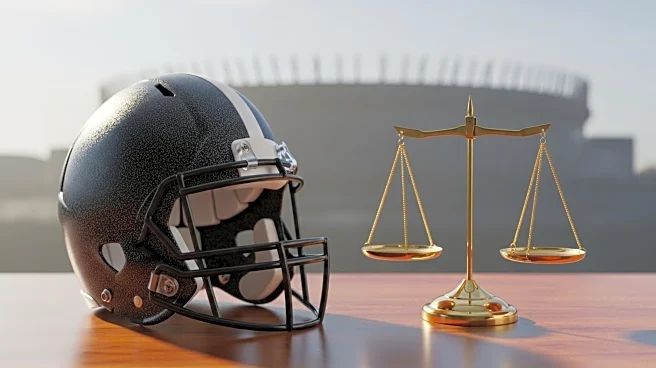What's Happening?
The University of Oklahoma and football head coach Brent Venables have agreed to a new contract that includes a $1 million reduction in his pay for the 2025 season. This decision was initiated by Venables as a one-time give-back to contribute to the department's revenue-sharing efforts. The contract, obtained through an open-records request, maintains the expiration date and future payment amounts beyond the 2025 season. Venables is set to earn $7.55 million for the current season, with subsequent annual salaries ranging from $8.65 million to $8.85 million through 2029. The contract guarantees these amounts if Venables is fired without cause, subject to offset from future employment income. Venables is entering his fourth season as Oklahoma's coach, with a record of 22-17 over the past three seasons, including a challenging 6-7 record last season in the Southeastern Conference.
Why It's Important?
This pay cut reflects broader changes in college athletics, particularly in response to athlete-compensation antitrust settlements. Schools can now directly pay athletes for their name, image, and likeness, with potential payments and benefits reaching up to $20.5 million for the 2025-26 school year. Venables' decision to reduce his salary highlights the financial adjustments institutions are making to accommodate these new athlete compensation models. This move may influence other coaches and universities to consider similar actions, impacting the financial landscape of college sports and potentially altering recruitment and retention strategies.
What's Next?
As the NCAA and Power Five conferences adapt to new athlete compensation rules, universities may continue to explore revenue-sharing models and adjust coaching contracts accordingly. The impact of these changes on college sports dynamics, including team performance and athlete recruitment, will be closely monitored. Stakeholders such as athletic departments, coaches, and athletes will likely engage in ongoing discussions to balance financial sustainability with competitive success.
Beyond the Headlines
The shift towards direct athlete compensation raises ethical and legal questions about the commercialization of college sports and the balance between educational and athletic priorities. Long-term implications may include changes in how college sports are marketed and the role of athletes in university branding and revenue generation.












